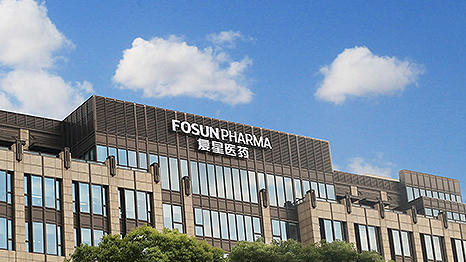Fosun Pharma Invites Top-Experts to Discuss New Trends in Maternal and Childhood Malaria Chemoprevention for 9th eCME

Shanghai, China, 19 November 2020 - Scheduled at 15:00 GMT, the 9th eCME, hosted by Fosun Pharma, gathered 700 attendees from 22 African countries. This year marks the 6th year of the eCME program, which is now part of the Fosun Pharma Malaria Care Initiative project. Fosun Pharma has always considered the fight against malaria as part of its corporate social responsibility, and fulfilled this belief through the development, production and marketing of antimalarial drugs. The eCME program is therefore designed to provide an online academic platform to Africa’s healthcare professionals through Internet-based multimedia interactions, to help them catch-up the latest medical developments, and offer them a face-to-face interaction opportunity with world’s top experts while improving their professional skills and advancing healthcare development in Africa. Doctors, pharmacists, KOLs from public and private sector, institutions & NGO’s representatives gathered to learn more about the New Trends in Maternal and Childhood Malaria Chemoprevention.

The opening address and welcoming remarks were given by Mr. Dongming Li, Co-President of Fosun Pharma and President of Shanghai Fosun Pharmaceutical Industrial. He emphasized that “Fosun Pharma has a globally-leading research and development platform of antimalarial drugs” and that “so far, we have 20 WHO PQ antimalarials, which makes Fosun Pharma the pharmaceutical company with the highest number of prequalified antimalarial products”. Mr. Li also expressed Fosun Pharma’s support to all the countries and the company’s response to the fight against COVID-19 in Africa, “since April, Fosun Pharma has donated around $200,000 worth of virus prevention material and equipment. The material is intended to be used by front-line healthcare workers to alleviate the burden on local health system.”

In order to present this eCME, we received two prominent international experts in malaria: Professor Dr. Kamija Phiri (Professor of Public Health and Clinical Epidemiology, College of Medicine, University of Malawi), and Professor Dr. Feiko O. ter Kuile (Professor of Clinical Tropical Medicine from Liverpool School of Tropical Medicine). The speakers interacted online with health officials and medical experts, sharing their new findings on malaria chemoprevention and providing updates on clinical research. The webinar was broadcasted in English- and French-speaking African countries thanks to a live translation.

Professor Kamija Phiri first introduced his study on Malaria chemoprevention for the post-discharge management of severe anaemia in pre-school children in Africa. Indeed, children aged under 5 years are the most vulnerable group affected by malaria. They accounted for 67% of all malaria deaths worldwide in 2018 (WHO World Malaria report 2019). Professor Phiri led several studies in Malawi, Kenya and Uganda. these studies show that Post-discharge Malaria Chemoprevention (PMC) is highly effective in reducing the risk of death or readmission in children with severe anaemia post-discharge. PMC is also highly specific on reducing malaria related outcomes such as severe anaemia, severe malaria and uncomplicated clinical malaria. Lastly, Prof. Phiri presented the results of a delivery trial designed to evaluate the optimal delivery strategy for the best adherence to PMC: the community-based PMC delivery significantly increased adherence.

The eCME ended with a 1-hour Q&A session, in which doctors and KOLs raised interesting questions to both professors. The participants took the time to congratulate the speakers for their presentations in the comment section: “Great presentations to Kamija and Feiko. Recognition to the years of research to come up with this data and analysis.” – Namibia, “Great to see that PMC with DP had excellent results. Policy makers need to move fast and we adopt this to save the lives of our children.” – Dr. Abel from Uganda, “I must say this is an amazing information shared here on malaria case management and Prevention by both speakers. Very important information for me as part of the study team of a yet to kick start Multiple First line Therapy implementation in management of uncomplicated malaria” – Dr. Adoyo from Kenya…
Find more information on Prof. Phiri and Prof. ter Kuile's new study on Malaria Chemoprevention in the Postdischarge Management of Severe Anemia.





